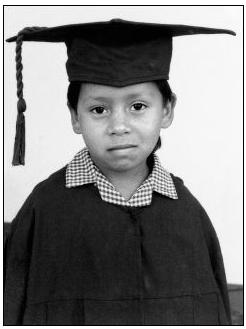Several people recommended the book, "Enrique's
Journey" to me as a way to put a human face on the immigration crisis. I
finished it this weekend. This is the review I posted to my "Books Read in 2014" page
 This is a book based on a Pulitzer Prize winning series of
articles, first appearing in the Los Angeles Times. It was recommended to
me by many people as a story that would put a human face on the immigration crisis that
has taken center stage in our newspapers and television news these days. The author
experienced many things that her hero, Enrique (no last names are given to any living
person to protect them from possible capture by immigration authorities) experienced so
that she could truly relate his story. He made nine attempts to travel from
Honduras to the United Statets to find the mother who left him and his sister when he was
five years old. She was unable to feed her children and she left to seek a better life in
the U.S. so she could send money home so they could have food, clothes and a chance for an
education. This is a heartbreaking story of a young boy's search for love and
acceptance.
This is a book based on a Pulitzer Prize winning series of
articles, first appearing in the Los Angeles Times. It was recommended to
me by many people as a story that would put a human face on the immigration crisis that
has taken center stage in our newspapers and television news these days. The author
experienced many things that her hero, Enrique (no last names are given to any living
person to protect them from possible capture by immigration authorities) experienced so
that she could truly relate his story. He made nine attempts to travel from
Honduras to the United Statets to find the mother who left him and his sister when he was
five years old. She was unable to feed her children and she left to seek a better life in
the U.S. so she could send money home so they could have food, clothes and a chance for an
education. This is a heartbreaking story of a young boy's search for love and
acceptance.During the first part of the book, I wanted to give it to every person standing with a sign shouting hateful things at buses full of frightened children. To have them read the conditions in their home entails and realize how desperate you have to be to even attempt it. Physical violence and rape are just one aspect of it. Children lose body parts in accidents with moving trains, there is travel across the desert with no food or water, hunted like dogs,...etc., etc.
Enrique was caught and sent back to Honduras eight times. On his ninth try, he finally made it and actually found his mother in South Carolina, but this is not a "happily ever after" story. The difficulties children and parents face after a separation of years is incredible. The second half of the book talks about that, about statistics, about the new life in a new country and I have to admit that my head was spinning before I finished it. I no longer knew whether this migration was a good thing or a bad thing.
You look at the face of Enrique at his kindergarten graduation, wanting only for his mother to be there. And then you watch what he goes through in the intervening years. The end of the book is ambiguous. We know where Enrique is, but we don't know where he will be after that.
The one thing this book did for me was to make me want to sponsor a child in Honduras through Compassion.
I found Brayan, 12 years old (the age Enrique was when he decided he would save money so he could find his mother), living with his grandmother (like Enrique's sister did after their mother left) and I figured I can't make conditions better on any grand scale, but maybe I can help one child have a better, safer life.
I highly recommend reading this book. It's not a feel good book and I doubt that anybody will find any black and white solution in it, but it definitely puts a new level of understanding on what is happening on our borders right now, and should make anyone hurling epithets at immigrant children feel ashamed of themselves (but I doubt if it will).
In a bit of serandipity, Jon Stewart's guest on tonight's The Daily Show is the woman who wrote "Enrique's Journey."
 |
| Day 29: Happiness is a new boy (Brayden from Honduras) in our family. |

No comments:
Post a Comment